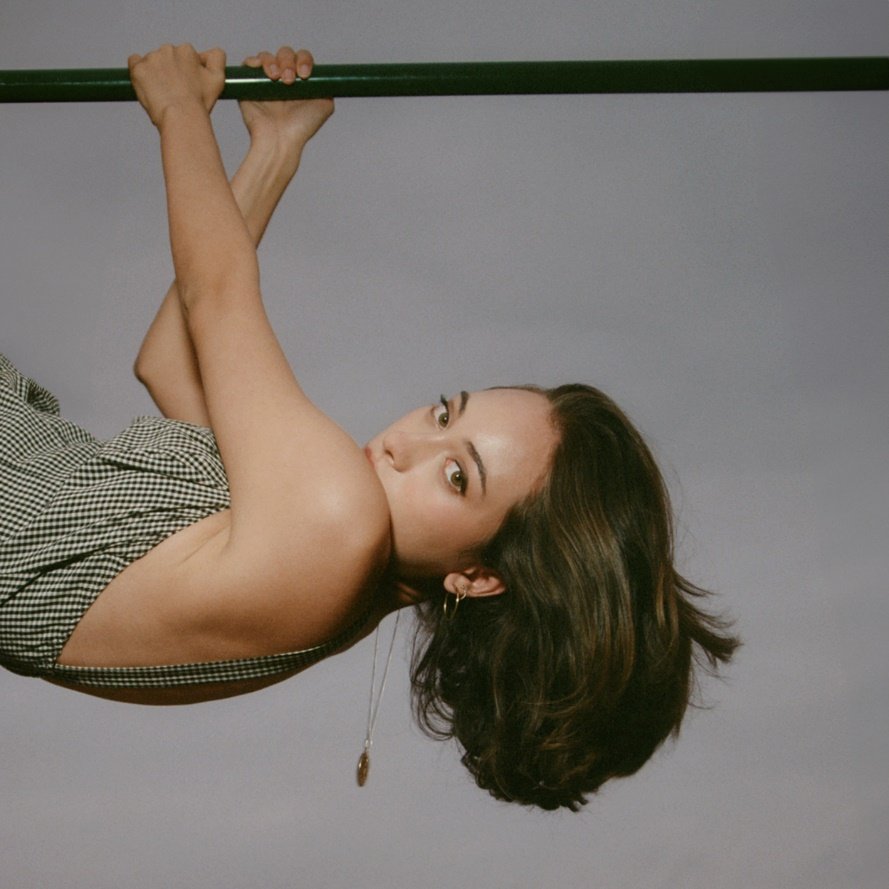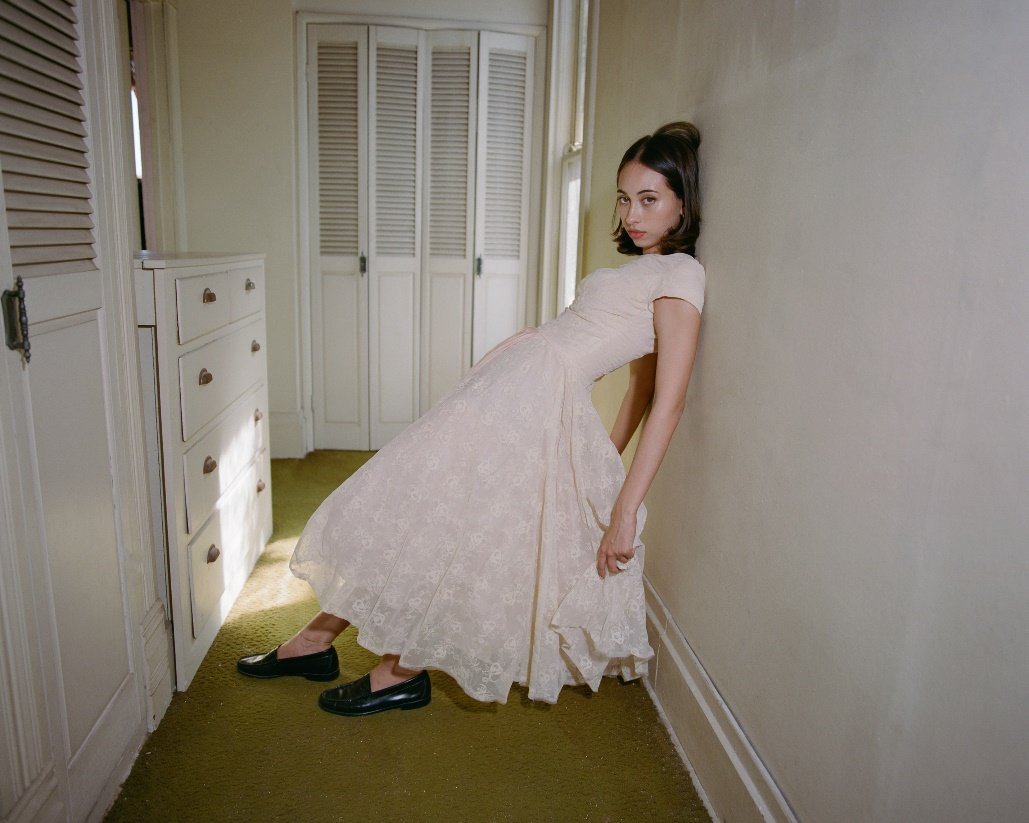Q&A: Sofía Valdés discusses her journey throughout her music career on upcoming EP ‘Silvia’
THE RISING LATINX SINGER-SONGWRITER — Sofía Valdés is destined for greatness with her authenticity in songwriting and intoxicating voice. Music flows through her and into the hearts of those who are willing to listen. You’ll be immediately enraptured by Valdés’ vocals, alongside her soft demeanor. She speaks with grace and passion for the music she creates and the stories that coincide with her songs. Valdés is relatively new to the music scene, with her first song release back in 2020, yet she’s been creating music since she was eight years old. Her discography is described as alternative pop, with a large influence coming from her rich multicultural musical heritage.
Luna got the chance to speak with Valdés about her new single, “Easy,” off her upcoming EP, Silvia, with musical influences from bossa nova, Motown, folk, and various other genres. Michael Uzowuru, a man with an impressive track record, produced Valdés’ new project.
Uzowuru has worked with artists such as SZA, Frank Ocean, and Rosalía. It’s quite telling of the talent Valdés possesses and continues to use.
Read below as Valdés shares about her family’s musical lineage, what fate means, meeting Sam Smith, her younger self, and how it looks to trust yourself through a creative process.
LUNA: Silvia is the title of your upcoming EP named after your grandmother, Silvia De Grasse, a famed Panamanian singer who's performed with Louis Armstrong and has worked with other talented musicians. Is there a favorite song of hers that you listened to while working on your EP?
VALDÉS: No, not at all. It was mainly her character for me. She's my great-grandmother from my dad's side. Her story of growing up in Panama and pursuing music was interesting. It was a weird thing to do when she was growing up. I’ve found myself saying, ‘Why the heck am I doing this? I don't think I'm going to do this. I should go home to be with my dog, sister, and mom. That's the only thing that I care about.”
I felt like I wasn’t aligned with music as much as I wanted to be. I talked to my dad about it, and he told me that Silvia also felt the same way, in that pursuing music was too much for her. I never got to meet her, but all the stories about her and the outfits she would wear… she was scandalous in Panama for the time. She was kind of a badass [who] would do whatever she wanted.
LUNA: Wow!
VALDÉS: I listened to her music a lot, but Silvia wasn’t influenced by her music. It was her character that came through in her songs. She was very cheeky in the things she would say.
LUNA: You were talking about your family heritage in music. It almost feels like it was written in the stars for you to be a singer-songwriter — almost like fate. What's your view on fate or destiny? What does that mean to you?
VALDÉS: I 100% believe in faith. I've had things happen in my life, and that's even where Silvia comes in, where I’m like, “Ah, maybe this is not for me.” I’ve felt like when I’ve tried to get away from music, something always tries to pull me back. It’s super strange, and my mom has said, “I feel like you try to leave it sometimes, but there's this weird energy in the world that doesn't let you,” and then something crazy happens.
One time, when I was living in Liverpool, I told myself that I would move to Panama and be a yoga teacher. When I decided this, my friend wanted to take me out to London before I did. I don't go out. I don't drink. I don't do anything. So on the only night out I ever had in England — I don't know how this happened, but — I ended up in Sam Smith’s house. It was super random.
LUNA: What?!
VALDÉS: I don't even know why I was there. I see Sam Smith and say their name because they’re someone [who’s] done very well for themselves as a singer-songwriter, and I admire that. When I was about to leave, they called me back and said, “Hey, can I talk to you for a second?” I said yeah, and they continued: “You and I are on the same path. I know you don't know that. You don't know it, but I feel like we're very similar. Whatever you’ve got going on, you shouldn't give up on it yet.” I was like, what the fuck just happened? Why are they telling me that? I wondered if it was a sign.
And then they said, “This is the sign you were looking for.” They said the exact things I was questioning. I never talked about who I was or what I was trying to do with music. It’s like they read my future.
LUNA: I’m getting chills.
VALDÉS: It was such a strange time in my life. And then to have someone you look up to tell you something like that… Because I made it my mission to not even talk about myself. I didn't do any of that. I believe in fate, especially when things like that happen.
LUNA: Speaking of people like Sam Smith as someone you can look up to as a singer-songwriter, who seemingly makes positive impacts… Who are other artists who have influenced you or your writing process for Silvia?
VALDÉS: There are a lot of bossa nova artists and Brazilian artists that I've always listened to; there’s João Gilberto, Marcos Valle… And then a lot of Motown has always been a big one for me, like Marvin Gay, Bobby Walmack, and The Impressions. There’s also some folk music.
Something I was trying to do with this EP was for it to be embarrassingly me, in a way. I found myself going back to “Little Did I Know.” That's the first song I ever put out. I liked that I wrote that song and wasn't thinking about anyone else. I was just thinking about what I liked and who I was. When I was writing this EP, “Little Did I Know” was the song that resonated with me for years. I was inspired by my younger self who wasn’t clouded by fears about the music industry’s future.
LUNA: When did you start writing songs? How old were you?
VALDÉS: I started writing when I was 13. I started playing guitar at eight years old, and then piano off and on. I remember when Lorde put out an album. I was thinking, “Oh my god, I don’t have much time left.” Lorde wrote an entire album when she was 15 and released it when she was 16. I was like, “I have two years to make it. My time’s running out to be a billionaire by 18.” No one’s reality is to be a billionaire at 18, you know? I realized she was young and writing, and I could write too.
LUNA: Speaking on why you felt like you had to make it by 15 or 18 as a 13-year-old, do you think women in the music industry feel like they have to be young to reach a certain level of success before it's too late?
VALDÉS: I was talking to Michael Uzowuru, the executive producer for Silvia, and asked him if I was too old for this. He was like, “No.” He's an intelligent man [who] has worked with people like SZA, and she popped off in her late twenties. Same with Frank and Rosalía as well. She's 30, and that's so young. There's this narrative that we've been told that if you don't make it by 22, then you won't make it in music as a woman. I think that there are a lot of people in the industry [who] do think that way on the business side. I genuinely think that’s the case. I think it's up to us to prove that wrong and for other women to support women.
LUNA: You mentioned when you were writing your new single, “Easy,” you were remembering a time when you were asking people for help but no one was lending a helping hand. I was wondering if you could expand on how people respond to certain people's situations or troubles by saying, “Just sleep it off.” Where do you think people come from with a response like that?
VALDÉS: People don't want to realize someone’s situation is a big deal because then they would have help. They convince themselves it's not an issue, so they kind of gaslight you into thinking that. I'm not from the US and didn't have a house for four months — it was stressful. I couldn't be in an Airbnb, either, because I couldn't afford that. It was a very dark time for me. I was in and out of my friend's house and sleeping with them in the same bed and everything… It was hard. In the process of finding housing, I showed people my legal documents and was still denied from eight different houses. I felt like people weren’t understanding how much I was affected mentally. I was trying to get help, and was very dismissed.
LUNA: That sounds really hard. To think you showed legal documents to these people and they're like, “Well, how can we verify this? We're not giving you housing.” That makes no sense.
VALDÉS: It was crazy. I think my friend from high school’s mom saw that I was struggling, and [she] really stepped in. They both really helped me and reassured me there are kind people out there, for sure.
LUNA: On “Easy,” the beginning guitar riff reminded me a lot of Radiohead’s intro to “Paranoid Android.” It has a similar arpeggio with the darker tones, and minor/dissonant chords. Compared to your recording and production experience with your last EP from 2022, how did you apply what you learned from In Bloom to Silvia?
VALDÉS: I think I was rushing with writing songs before. I knew I wanted to make a project that is very meaningful, and I knew exactly what kind of songs I wanted to write before I even wrote them. It took me about a year to write these songs because I was set on what I wanted to write and what I was going to write. That was it. I think I was following my gut a lot, and Michael was a really big influence in my life. He really pushed me to believe in myself and to listen to myself throughout the record.






